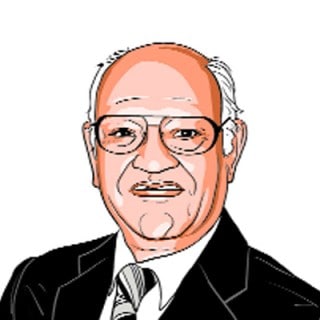I grieve for my men
But having led Punjab Police in fight against terrorism, I can say that strong-arm tactics alone will not work

I grieve for my men who lost their lives so suddenly in Pulwama. The entire country is grieving. More so, the man who once commanded the force. After my three years-plus as Mumbai city’s police chief, I was asked to head the Central Reserve Police Force (CRPF), which I did for a few weeks in 1985 till the then prime minister felt that the state of Gujarat needed my services.
Earlier, as a middle-ranking officer, I had served the CRPF as the Range DIGP in Hyderabad for three and a half years before doing a staff assignment at its headquarters in Delhi for another two and a half years. Having spent six years in this excellent force, readers will forgive me for shedding more tears than others who do not know the ethos that informs the performance of its brave jawans.
Unlike the army that recruits mainly from the martial races and organises its regiments accordingly, the CRPF casts its net all over the country. Great care is taken to ensure that all states, all communities, all religions, all castes and all languages are represented in each battalion. The men soon learn a common language that is Hindi or Hindustani and they adjust to a common diet and a common ethos. They live away from their families for months together, most often in the most primitive conditions.
In the ranks, the CRPF is slyly referred to as “Chalte Raho Pyare” because of the constant moves a battalion is called upon to undertake when unrest raises its ugly head in some remote corner of the land. Theirs is not to reason why. They are to obey and obey instantly without any waste of time.
In the ranks, the CRPF is slyly referred to as “Chalte Raho Pyare” because of the constant moves a battalion is called upon to undertake when unrest raises its ugly head in some remote corner of the land. Theirs is not to reason why. They are to obey and obey instantly without any waste of time.
The job of the officers and the NCOs is to ensure that discipline is always maintained and that the training of the men to tackle terrorists and violent mobs is imparted in such a manner that the minimum possible force is used on each occasion. Hence, it grieves me to learn of the instant loss in one explosion detonated by a “fidayeen” of 40-odd well-trained and highly motivated men of the force I once called my own.
Was it preventable? Many will argue that more precautions could have been taken to sanitise the road on which the convoy travelled. That is easy for arm-chair analysts to conclude. They need to be reminded that security forces have to be lucky all the time in operational areas in order to survive. The terrorists need such luck only once in order to succeed. A determined suicide bomber knows that once he has escaped the intelligence networks and security cordons, no power on earth can stop him. If the going is impossible on a dozen occasions, a chink in the security armour may possibly be found on the thirteenth try. And the consequences are disastrous, as we have seen. You have to be alert 24×7 each day in such terrain if you want to die in your own bed at home.
The sacrifices these men have made have been acknowledged by ordinary folks all over the country. In Mumbai, the city in which I live, street corner gatherings of men and women of all ages, castes and creeds, have been spontaneously organised with lamps being lit in memory of the fallen brave.










.png)




























No hay comentarios:
Publicar un comentario